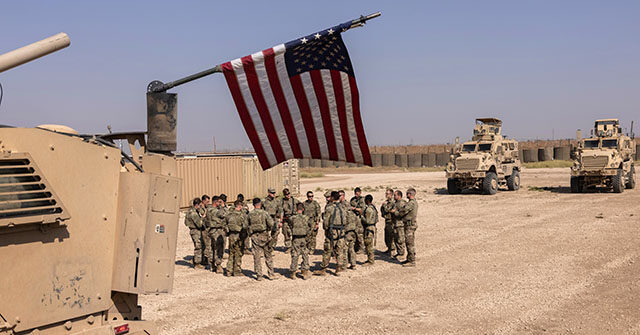Iranian Defense Minister Aziz Nasirzadeh said Wednesday that Iran will attack American military bases across the Middle East if the U.S. or its allies take military action against Iran’s nuclear weapons program.
“Some officials on the other side threaten conflict if negotiations don’t come to fruition,” Nasirzadeh said.
“All [U.S.] bases are within our reach, we have access to them, and without hesitation we will target all of them in the host countries,” he threatened.
“God willing, things won’t reach that point, and the talks will succeed,” he added.
Nasirzadeh said if a conflict breaks out, the U.S. would “suffer more losses” than Iran. He claimed Iran has made “significant progress” in military technology since its dismal showing in missile attacks against Israel last year, and its armed forces are now “fully equipped” and ready to handle any adversary.
The Iranian defense minister was most likely responding to Tuesday’s news that Gen. Michael Kurilla, head of U.S. Central Command (CENTCOM), briefed Congress on the “wide range of options” he has presented to President Donald Trump for possible military action against Iran.
“President Trump has made it clear that if Iran doesn’t permanently give up its nuclear enrichment, military force by the U.S. may be necessary. If the president directed, is CENTCOM prepared to respond with overwhelming force to prevent a nuclear-armed Iran?” House Armed Services Committee Chair Mike Rogers (R-AL) asked Kurilla during a hearing on Tuesday.
“I have provided the secretary of defense and the president a wide range of options,” Kurilla replied.
President Trump said on Tuesday he was “disappointed” that Iran was “acting much more aggressively in negotiations than it did just days ago.”
“They’re just asking for things you can’t do. They don’t want to give up what they have to give up. They seek enrichment. We can’t have enrichment. We want just the opposite, and so far they’re not there. I hate to say that, because the alternative is a very, very dire one,” the president said.
Trump held out some hope for improvement in the sixth round of indirect U.S.-Iran negotiations, set to begin on Sunday in Oman. The “indirect” nature of the talks means the American and Iranian teams do not speak to each other, instead passing their messages through the meeting’s Omani hosts.
The Jerusalem Post (JP) on Tuesday posited that Iran has grown more confrontational because it fears the International Atomic Energy Agency (IAEA), the United Nations nuclear watchdog, will pass a resolution condemning Tehran for non-compliance at its Board of Governors meeting in Vienna, Austria. The meeting is scheduled to conclude on Friday.
In his opening address to the meeting on Monday, IAEA Director-General Rafael Grossi expressed frustration at Iran’s evasiveness over uranium particles discovered at three undeclared locations in 2019 and 2020.
“Unfortunately, Iran has repeatedly either not answered, or not provided technically credible answers to, the Agency’s questions. It has also sought to sanitize the locations, which has impeded Agency verification activities,” Grossi said.
Grossi also condemned Iran for failing to comply with IAEA inspections, and for continuing to enrich uranium at levels far beyond any peaceful civilian purpose.
“Unless and until Iran assists the Agency in resolving the outstanding safeguards issues, the Agency will not be in a position to provide assurance that Iran’s nuclear programme is exclusively peaceful,” he said.
The JP noted that Iran’s current rhetoric leans toward slamming the U.S. and Europe for allegedly “abusing” the IAEA for sinister “political purposes,” rather than vowing to improve Iran’s cooperation with the agency. The Iranians are saying their uranium enrichment program is “non-negotiable,” and they are prepared to retaliate if they feel the U.S, Europe, or U.N. is pushing them too hard.
Read the full article here
